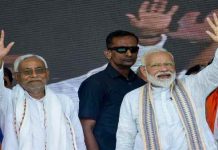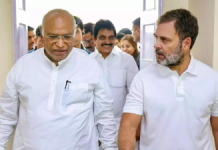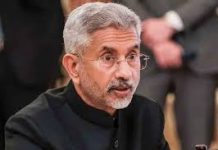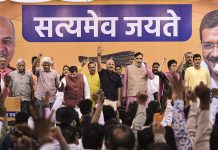
Pakistan and China are likely to recognise Islamic Emirate of Afghanistan anytime as rest of the governments across the continents express their reservation on the issue
Much against the saner advice of the knowledgeable sections of its society comprising former diplomats, political analysts and others, Pakistan appears to have finally decided to accord recognition to the Afghan Taliban as the legitimate rulers of Afghanistan. China would soon follow its ally. Earlier, Pakistan had recognized the Taliban government during 1996-2001 and had allowed its embassy in Islamabad as the sole representative of the Islamic Emirate of Afghanistan (IEA).
However, the governments across the continents have reservation on this issue, which was expressed in the UN Security Council (UNSC) Resolution of August six. It had asked for a peaceful resolution among all the all groups and stakeholders, disapproving any move to establish IEA by force. India had taken the initiative as she presides over the UNSC in August. She had summoned the meeting following the telephonic talks between India’s External Affairs Minister, S. Jaishanker, and his Afghan counter-part, Mohammed Haneef Atmar.
Amidst these peace efforts at the UN headquarters in New York, the Taliban reinvigorated with fresh supplies of high-quality of Chinese weapons and massive influx of the Jihadis from Pakistan, have captures the Zaranj, the capital of Afghanistan’s Nimroz province, attacked Sheberghan, capital of Jowzjan province, and trying to take over Lashkar Gah in Helmand and other provincial capitals. It also appears that the Taliban have also acquired anti-aircraft guns to prevent US airstrikes in support of the Afghan government forces.
Meanwhile, the Pakistani army chief, Qamar Javed Bajwa, and Prime Minister Imran Khan have visited Peshawar, who reportedly were assured that the Taliban forces were only 50 kilometres from Kabul. They had gone to the border town under the pretext of giving homage to the Islamic Jihadis killed in the ongoing civil war in Afghanistan. There was little impact of the US warning issued in the wake of the surrendering the capital city of Kunduz, which had reiterated its demand that Taliban must adhere to its commitment of the Doha Accord. The Doha Accord had paved the way for a negotiated settlement in the war-ravaged country. In the occupied territories, the terror group has imposed strict Islamic or Sharia laws and its forces were looting civilians and taking away their daughters to serve as “sex-slaves” to the Jihadis.
In Ghazni, the Taliban authorities have issued an “fatwa”
a religious order to the civilians to hand over their daughters and widows above
the age group of 12 to serve the Jihadis. Apart from the Afghan foreign minister, the Special Representative of the UN Secretary-General for Afghanistan, Deborah Lyons, also presented a detailed graphic report of the repression unleashed in the recently occupied Talban-controlled territories. These exposures have made the proposed Doha meeting of the three powers, USA, China and Pakistan under the Russian umbrella scheduled for the second week of August irrelevant or a futile exercise, especially following the
revelation of the China-Pakistan and Afghan Taliban nexus. The unprecedented violence has also dashed the hope of a national reconciliation that Talban would work for a stronger Afghan nation by forming a national government in Kabul. It is also noted that the Taliban became more aggressive following the visit of Taliban leaders to Tianjin in China in July. It is widely believed that China having an agenda to access thee trillion USD worth of minerals in Afghanistan has offered both financial and armament support to the Islamists. Its immediate impact was that about 10,000 Pakistani Taliban forces have moved to Afghanistan to fight against the Kabul government.
The Pakistan’s Dilemma
The deteriorating situation in Afghanistan has caused deep concern among the saner elements in Pakistan, who want a meaningful dialogue with USA instead of allying with China and extending support to the Taliban. However, for this the hybrid civilian government of Khan and the army chief Bajwa have to climb down from their anti-Nawaz Sharif policy. Itis quite well-known that how they had connived to topple the three-time prime minister Sharif and had implicated him in false corruption cases; and had got him convicted by manipulating judiciary.
Amidst these developments at the UN headquarters and the stern warning from the US administration, the apprehension of Pakistan’s top journalists and political commentators, including Nazam Sethi, is now in the public domain. They have cautioned that it is high-time for the civil and military leadership to strive for a”consensus on the Taliban issue”.
It means that the hybrid civilian government and the army have to allow the country’s most popular leader and three-time Prime Minister, Nawaz Sharif, to take the centre-stage of the country’s politics. It is unlikely. Khan and Bajwa have decided to follow the Chinese agenda in this region. They have taken this deliberate decision even after being briefed about the recently held talks between the Pakistani National Security Advisor, Moeed Yusuf, and the US National Security Advisor, Jake Sullivan. It is stated that Pakistan has been given the option either to pressurize Taliban to end violence or if it could not influence them, it should support the US by giving it the air space and other logistic facilities.
Meanwhile, Pakistan has protested for not being invited to the UNSC meeting. It has claimed that being the neighbour of Afghanistan, it is keen to work for the reconciliation among the warring groups. However, few were prepared to accept its rhetoric anymore. However, the Chinese sensing the mood of the UNSC members did not support the Taliban or its close ally Pakistan.
The UNSC meeting also was given the details of the Pakistani mischief. It was told about the recent attack at the residence of the Afghanistan’s defence minister, Bismilliah Mohammed, in Kabul. Meanwhile, the Afghan foreign minister, Mohammed Haneef Atmar and the Afghan ambassador in UN, Farid Mamundzay, have been briefing envoys of several in countries, on the grave security situation in his country as well as the collusion between the Taliban and groups such as the Pakistan-based Lashkar-e-Toiba (LeT), Tahreek-e-Taliban Pakistan (TTP), al-Queda, Ansarullah, Jindallah, East Turkestan Islamic Movement (ETIM) and Islamic Movement of Uzbekistan. Also, there were few takers of the Chinese propaganda unleashed by its news channels and dailies like, Global Times.
Wang Jiang, a distinguished research fellow at the Institute for Frontier Region of China, Zhejiang Normal University, has recently been quoted in the Global Times that China could play the role as a better mediator between the Afghan government and the Taliban for its smooth and high-level communication with both sides whose peace talks may be stuck in stalemate for a long time.
The statement of the Chinese State Councillor and Foreign Minister Wang Yi before the Taliban delegation appeared to be full of rhetoric than any substance, when he stated, “We hope that the Afghan Taliban will put national interests first, hold high the banner of peace talks, establish the goal of peace, build a positive image and pursue an inclusive policy.” Wang Yi looks satisfied by being assured that the Taliban would not support the ETIM, a UN-designated terrorist group and stated that the Taliban would make a clear break with all terrorist organizations including ETIM. It seems there are few takers of the policy of running with the hare and hunting with hounds being followed by Pakistan and China.
tehelkaletters@gmail.com













